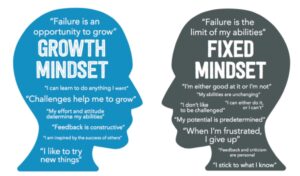“It is not the strongest of the species that survives, nor the most intelligent, but the one most responsive to change.”
– Charles Darwin
Rites are solemn or ceremonial activities. They can be publicly prescriptive, as in religious ceremonies, or privately improvised, in personal development activities.
Rites of Passage originated as ancient, critical markers of personal growth, development, and achievement. They’ve been used for all time to recognise the progressive personal development stages everyone has to move through to achieve their highest potential.
Age encourages us to relegate rites of passage to the young and inexperienced, eg: baptism, confirmation, bar mitzvah, marriage, graduation, career qualification, etc. In so doing, we deny ourselves opportunities to question, learn, and grow by seeking new challenges.
When this attitude persists we start to stagnate, or fossilise, as we become increasingly resistant to personal adaptation, evolutionary improvement, and change. Sound familiar?
Psychologist Dr. Carol Dweck of Stanford University created the concept of: “Growth mindsets” vs “Fixed mindsets”:

Credit: Knoldus / Nash Tech
In essence, people with Growth mindsets remain forever curious about the world. They’re motivated to keep on learning, and they embrace challenge, change, and the excitement of doing stuff.
Contrast with individuals with Fixed mindsets who accept their own perceived limitations as defining what they can achieve. They won’t push the envelope, even when they should.
A Rite of Passage through Fly Fishing
At the age of 50 I decided I wanted to become a competent fly fisherman. I’d fished in modest ways since childhood, and knew how to catch fish in most situations. Fly fishing required specialised knowledge, a different attitude, and a whole new set of skills. Most of what I thought I knew about fish and fishing was relegated to a back pocket in a cast off pair of jeans.
For many years I’d seen myself as a controller: a leader, manager, and teacher of others. I had now to become a humble student – learning through research, and the generous sharing of knowledge by others with the knowledge, experience, and skills I so desired.
Time was precious, and for over 2 years I was frustrated by a profound lack of success. A creature (trout) with a brain the size of a pea, was besting me. I knew I could turn the tables by reverting to old techniques, but I persisted, and eventually began to catch trout on the fly – occasionally quite a lot of trout.
The first day I caught 3 small wild trout in a small stream was a rite of passage – a form of birthing into the fly fishing fraternity. Thanks Bill! But fast forward almost 20 years: despite catching thousands of trout (and other fish), I still felt I’d not “arrived” as a fully-fledged fly fisher. Yes, I could bullshit with the best of them, but in my heart of hearts I didn’t feel I’d been truly tested, therefore I hadn’t legitimately been approved. I hadn’t proved to myself (even if I’d fooled others) that I was good enough to feel I’d arrived and that I deserved a place with real fly fisherfolk.
Pre-covid, Alf Priestly and I planned to fish Patagonia – home to the world’s largest and wildest trout. Alas, it was not to be, as post-covid prices had more than doubled. In compensation we booked two weeks in February 2023 with Bruce Leitch’s Dreamwaters, in New Zealand’s South Island, instead.
We avoided crowds and cyclones, we missed predicted cicada and mayfly hatches, we competed for attention with tiny willow grubs …. and yet we prevailed. We caught seriously big, beautiful, bruisers – both browns and rainbows – in a series of seriously gnarly situations. I could feel the incremental benedictions of the fishing gods: I was there, and I was doing it. I craved success, and wasn’t afraid to fail. I understood what I needed to do better to earn success. Simply: more patience, better fish spotting eyes, longer leaders, more accurate casts, better presentations, and appropriate fly selection (from the fish’s perspective).
I made it happen, and I was rewarded. And strangely I realised that it really wasn’t about the fish. We didn’t catch all that many – a 4 fish per person, day was a good day, but most days I struggled to recall how many fish I’d actually caught, or even what they looked like, once caught. What struck me most was that I was in the zone. I was precisely where I wanted to be; doing what I wanted to do; the way it needed to be done. It was bigger than me. I owned my place in that bigger thing. I belonged there, though just a short while. I’d done my time and I’d arrived, complete and worthy of my place, on a journey that began as a teenager in Scotland, and recommenced more than 25 years later.
I pray the journey isn’t anywhere near its end. There’s so much fishing left to do. I have no reservations. It’s come just in time – my oldest grandson may be showing signs of the passion I’ve had since I was a small child – to the bemusement of my parents, who had no idea where or when the fishing bug bit.
I just need to organise his rite of passage a bit quicker!


